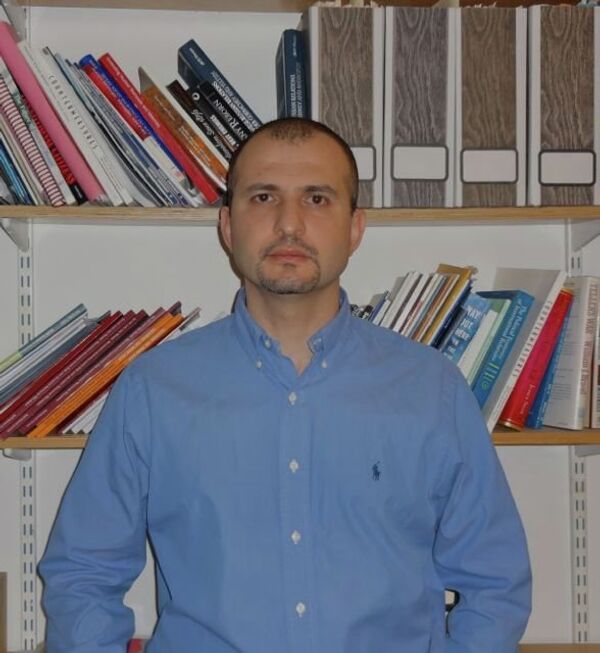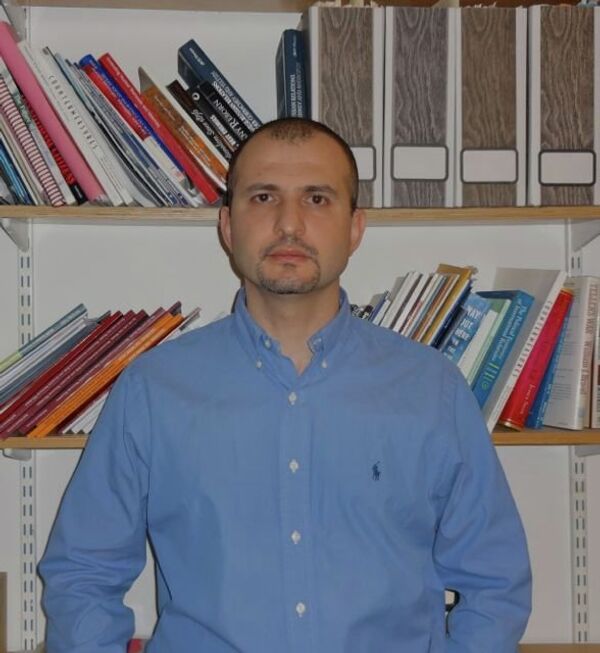President Barack Obama’s decision to pick Susan Rice and Samantha Power as his next National Security Advisor and US envoy to the United Nations respectively must have prompted international affairs scholars across the globe to wonder whether a more interventionist US foreign policy might be on the cards.

Both Rice, who has represented the United States at the UN for over four years, and Power, who has served in the National Security Council for almost as long, favor military intervention as a means of ending the mass killing of civilians.
At that time, together with Secretary of State Hillary Clinton, this duo reportedly overcame opposition from National Security Advisor Thomas Donilon, Defense Secretary Robert Gates, and chief counterterrorism advisor John Brennan, to see the United States push for the adoption of UN Security Council Resolution 1973, to introduce a no fly-zone over Libya and “authorize all necessary measures to protect civilians,” except for a “foreign occupation force” in the country.
Adopted in March 2011, UNSCR 1973 was used to provide air support to Libyan rebels who eventually overthrew the Gaddafi regime, to the dismay of Russia’s leaders who insisted that Western powers had overstepped their UN mandate.
Rice – who is said to regret not advocating the prevention of the Rwandan genocide in 1994 during her time with the Clinton administration, in what eventually made her a proponent of humanitarian military intervention – appears to feel as strongly about Syria’s President Bashar Assad as she did about Gaddafi.
In June 2010, however, Rice reportedly tried to make a case to Obama that the situation in Syria was close to a point where action without a UN Security Council (UNSC) mandate could be considered. However, then-Secretary of Defense Leon Panetta prevailed, arguing that he could not envision military intervention without UN support, as the New York Times reported.
Power – who won a Pulitzer Prize for her nonfiction book, “A Problem from Hell: America and the Age of Genocide” – feels just as strongly about the need to end the horrendous conflict in Syria which has killed more than 80,000 and displaced 1.6 million people, according to UN figures. And while Senate Republicans may have qualms about appointment of Rice – who has been accused of misinterpreting the deadly 2012 attack on the US consulate in Benghazi, Libya, Power has already won praise from GOP legislators, including such renowned advocates of the use of US military force abroad as Senator John McCain.
So, given this duo’s record as flag-wavers for intervention, should we expect Obama to significantly alter his policy on Syria? I don’t think so.
Obama’s approach to foreign policy has already been formed. Back in December 2008, when Obama nominated Rice for the UN job, he also elevated the post of US envoy to the UN to cabinet minister rank. Obama would not have done this if he intended to bypass the UNSC just as his predecessor George W. Bush had done.
More importantly, there are simply no good options for Obama to choose from, even if he were to sidestep the UNSC and authorize the use of military force in Syria. Assad may simply refuse to concede defeat in the absence of a full-scale ground intervention. But committing American or European boots to the ground, however, would be difficult given the reluctance of the Western public – already fed up with protracted campaigns in Iraq and Afghanistan – to see their countries dragged into yet another foreign military expedition that promises a lot of urban fighting.
And if even opposition forces were to succeed in unseating Assad with Western military assistance, the question would still remain open as to which of the various opposition forces, which include jihadist groups, would prevail in the struggle for power in Damascus.
It is this sheer lack of good options, not the Russian-Chinese vetoes on the UNSC, which discourages the Obama administration from engineering an intervention in Syria.
Rice’s promotion will not change the facts on the ground – that outside powers can and should try to mediate resolution of this horrendous civil war, but that ultimately only Syrians themselves can find a way out of the bloody stalemate which threatens to transform their homeland into a failed state, as I have argued in this column.
That said – I have no doubt that Rice will exercise greater influence over US foreign policy from her office in the West Wing of the White House than she did from the UN HQ in New York City. In fact, Rice could become as much of a competitor in that domain for Secretary of State John Kerry – whose current job she has coveted – as Henry Kissinger was for William Rogers or, more recently, Condoleezza Rice (no relation to Susan Rice) was for Colin Powell.
However, her sometimes blunt criticism of Russia’s and China’s positions on Syria at the UNSC should not be treated as a sign that she might push Obama to take a more assertive line toward Moscow.
Russia’s envoy to the UN Vitaly Churkin – who has repeatedly clashed with Rice in the UNSC – may have had a point when he recently joked that he was going to ask for a pay raise if his US counterpart didn’t land a job in the White House. Russia’s Security Council head Nikolai Patrushev may, conversely, find Rice to be a more amiable counterpart. After all, Rice’s job at the UN required her to be vocal in criticizing those opposing the US position on international matters, whereas the West Wing’s position is associated with a less public and more subtle approach toward foreign policy.
The statements that Rice made on Russia while serving as a top foreign policy advisor to then-candidate Obama are more indicative of the kind of advice that she would give her president on Russia and China than the scathing criticism of Moscow and Beijing she sometimes delivered from the UN rostrum, in my opinion.
In July 2008, Rice criticized Obama’s rival in the presidential race McCain for calling for Russia’s exclusion from the G-8. She also cautioned against rushing to point accusatory fingers in the aftermath of Russia’s August 2008 war with Georgia, accusing McCain of “shooting from the hip.” “If we're talking about the challenges we're facing from Russia's actions, we can't simply rewind the clock and assume it's back to the Cold War,” she said.
Simon Saradzhyan is a researcher at Harvard Kennedy School's Belfer Center. His research interests include international security, arms control,
counter-terrorism as well as political affairs in post-Soviet states and their relations with major outside powers. Prior to joining the Belfer Center in 2008 Saradzhyan had worked as deputy editor of the Moscow Times and a consultant for the United Nations and World Bank. Saradzhyan holds a graduate degree from the Harvard University.
The views expressed in this column are the author’s alone.
View From the Global Tank: Missile Defense Need Not Derail US-Russian Relationship
View From the Global Tank: The Last Chance to Prevent a Mediterranean Somalia
View From the Global Tank: Boston Bombing Puts Spotlight on Security Services’ Failure to Cooperate
View From the Global Tank: Europe Ignores Collective Security System Flaws at Own Peril
View From the Global Tank: Why Nuclear Powers Should Start Walking Toward Global Zero
View From the Global Tank: Russia Needs to Develop Eastern Provinces as China Rises
View From the Global Tank: A Chinese Silver Bullet for North Korea’s Nuclear Program?
View From the Global Tank: Russia Can Shoulder Obama’s Challenges - After a BMD Deal

